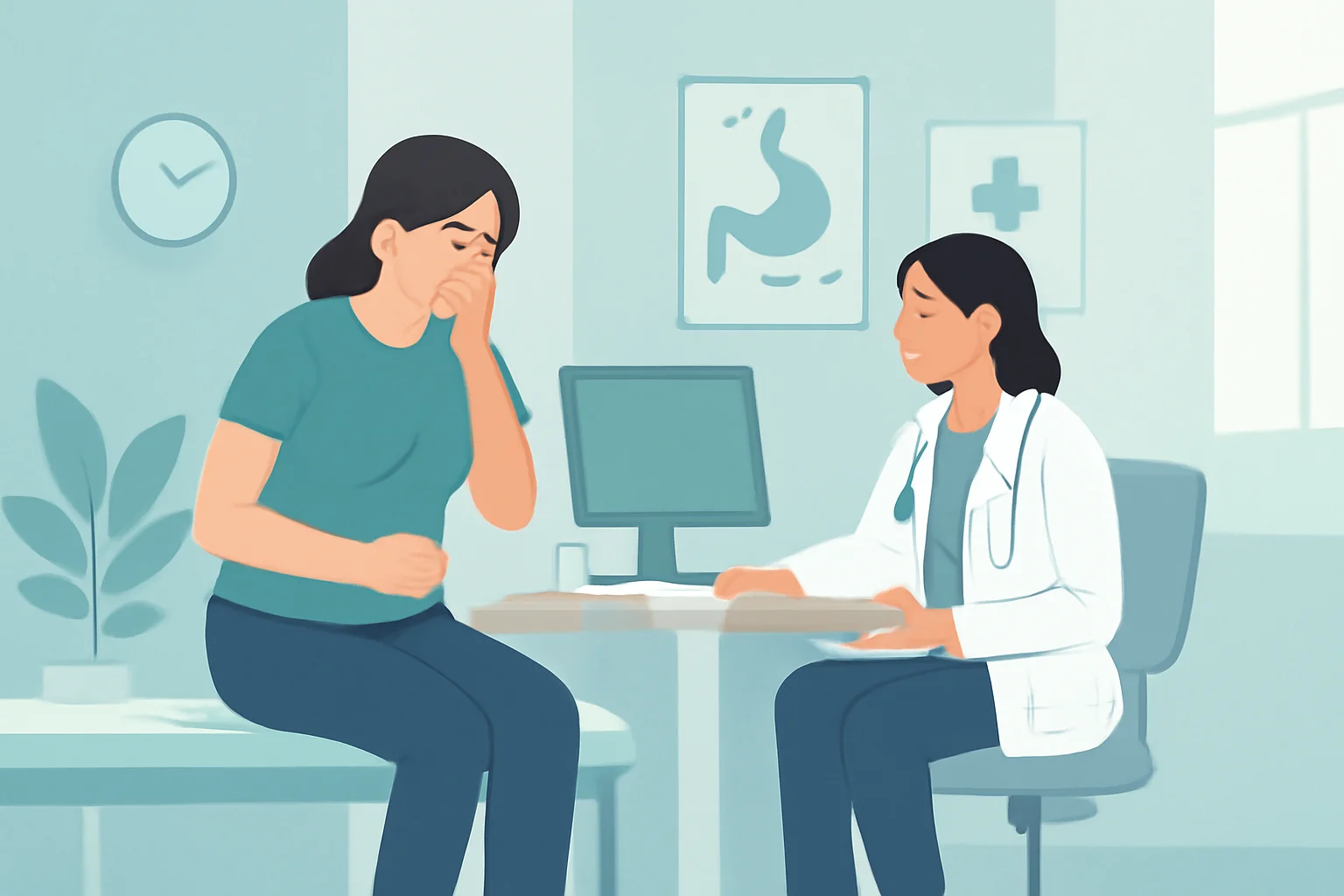
Nausea and Vomiting: Causes, Treatment Options, and Prevention
A nausea and vomiting are two symptoms that appear in many people’s lives from time to time, and there can be numerous underlying causes. These symptoms may manifest as signs of various physical and psychological conditions, and while they are often temporary issues, they can sometimes indicate more serious health problems. The feeling of nausea is often a consequence of gastrointestinal disturbances, food poisoning, motion sickness, or even stress. Vomiting, which is the peak of nausea, is the body’s defensive reaction to rid itself of harmful substances or irritants.
People experience these symptoms to varying degrees, and due to the diversity of underlying causes, the treatment methods can also differ. Nausea and vomiting are often transient and self-resolving, but if the symptoms are persistent or severe, it is important to seek medical help. At this point, it is worth understanding that nausea and vomiting are not just physical symptoms, but emotional and psychological factors can also influence them. Thus, proper treatment requires a thorough understanding of the triggering causes.
The Causes of Nausea
Nausea can arise from a variety of different causes, and its frequency and intensity can vary. One of the most common triggers is gastrointestinal disturbances, such as food poisoning or gastritis. These conditions generally cause irritation of the stomach or intestinal walls, leading to nausea. In the case of food poisoning, pathogens such as bacteria or viruses can enter the body through consumed food, causing inflammation.
Another common cause is motion sickness, which often occurs during travel in cars, airplanes, or boats. The feeling of nausea is caused by a discrepancy between motion perception and balance perception. In such cases, nausea is usually temporary and generally subsides once the motion stops.
Stress and anxiety can also play a significant role in the onset of nausea. Emotional stress affects the functioning of the stomach, and in many cases, this psychological state can lead to nausea. People struggling with anxiety disorders often experience nausea symptoms, especially in stressful situations.
Additionally, hormonal changes can trigger nausea. For example, many women experience nausea in the early stages of pregnancy, caused by hormonal fluctuations. Nausea and vomiting often occur in the morning hours, but can appear at any time of the day.
The Causes and Consequences of Vomiting
Vomiting appears as a consequence of nausea and can be considered a protective mechanism of the body. During vomiting, the contents of the stomach are expelled into the oral cavity, and this process can occur for various reasons. One of the most common causes is a gastrointestinal infection caused by viruses or bacteria. These pathogens irritate the stomach lining, leading to vomiting.
However, vomiting serves not only to eliminate substances from the stomach. The body can vomit for other reasons, such as intoxication, side effects of medications, or even migraines can cause vomiting. During vomiting, the body attempts to rid itself of harmful substances, but the process is not always without risk.
The consequences of vomiting can also be serious. One of the most significant consequences is dehydration, especially if vomiting persists. Loss of fluids and electrolytes can cause serious health problems, so it is important to replenish fluids after vomiting. In the long term, vomiting can also cause damage to the stomach and esophagus, so attention must be paid to the severity and duration of the symptoms.
The treatment of vomiting generally aims to eliminate the underlying causes. If vomiting is a consequence of an infection, the doctor may prescribe antibiotics or antiviral medications. If medications are causing the symptoms, the treatment may need to be adjusted. It is important to consult a doctor if vomiting is persistent or severe.
How to Treat Nausea and Vomiting?
The treatment of nausea and vomiting often depends on the underlying causes. The first step is always to understand what is causing the symptoms. If the cause is known and treatable, taking the appropriate steps can help alleviate the symptoms.
Home treatment methods include fluid replacement, which is particularly important in the case of vomiting. Water, fruit juice, or electrolyte-replenishing drinks can help prevent dehydration. It is important to drink small amounts to avoid further irritation of the stomach.
Various medications are available to alleviate nausea, such as anti-nausea medications that can reduce symptoms. These can be prescribed by a doctor, and it is essential to always follow medical recommendations.
Natural remedies can also help reduce nausea. For example, ginger, consumed in tea or capsules, effectively reduces nausea for many people. Peppermint candies or teas can also alleviate symptoms.
If nausea is caused by psychological factors such as stress or anxiety, relaxation techniques, such as breathing exercises or meditation, can also help. Lifestyle changes, such as regular exercise and a balanced diet, can also contribute to reducing symptoms in the long term.
It is important to emphasize that if symptoms worsen or persist, it is essential to consult a doctor. Due to the diversity of underlying causes of nausea and vomiting, proper diagnosis and treatment are crucial.
**Warning:** This article does not constitute medical advice. Always consult a doctor for health issues!

